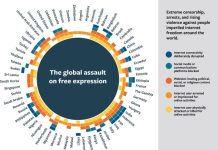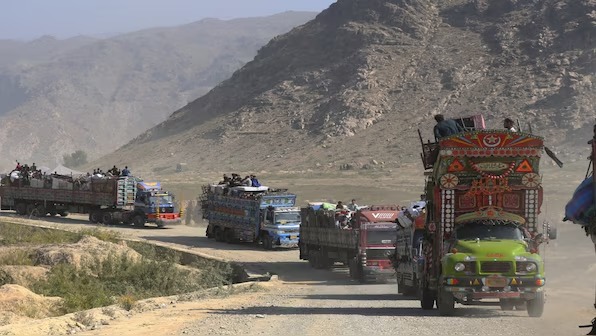Amid the brewing tensions between Pakistan and Afghanistan, reports are emerging that Islamabad has commenced the second phase of Afghan deportation. The controversial plan aims to send undocumented Afghan refugees back to their own country.
Pakistan began the second phase of deportation on Sunday. With this phase, the authorities are likely to expel more than 800,000 Afghans from the country. Around 541,000 Afghan refugees were forced to leave the nation in the first phase of the plan which was conducted in November last year.
What makes the plan so controversial is the fact that if these people do not leave voluntarily, the refugees will end up facing arrest and deportation by the local Pakistani authorities.
What was the need for such a plan?
Before the first phase of repatriation, the then-Pakistani government claimed that nearly 4.4 million Afghan refugees were living in the country, out of which an estimated 1.73 million were undocumented. The government went on to defend the crackdown by citing security concerns and also highlighted that it is hard to sustain them in an already crippling economy.
It is pertinent to note that the deportation order came amid a dramatic increase in armed attacks across Pakistan. Things became even more complicated when the government attributed these attacks to groups and nationals based in Afghanistan. However, the Taliban regime in Kabul has vehemently denied such accusations.
In the span of several months, the controversial plan has attracted criticism from the international level as well. In November last year, United Nations Human Rights Chief Volker Türk said he was “alarmed” by the news of Afghan refugees being persecuted in Pakistan.
“These new developments are at variance with Pakistan’s decades-long tradition of hosting, generously, Afghan refugees in vast numbers,” Türk said in a statement .
“Many Afghans are arriving with very few financial resources, having been forced to leave their homes and jobs, in addition to being forced to pay bribes or having their possessions seized. In the current context of Afghanistan, this is exacerbating an already precarious humanitarian situation,” the UN official furthered.
Philippa Candler, the representative of the United Nations High Commissioner for Refugees (UNHCR) in Islamabad told that the Pakistani authorities should look at the profiles of these undocumented Afghans before expelling them since they might be “in need of international protection”.
“They’re refugees. They’re not involved in terrorist activities. They’re just people who fled and who need protection,” said Candler, adding that if any Afghan nationals were involved in terrorist activities, “it should be dealt with separately”.
It is pertinent to note that Pakistan is not a signatory to the 1951 UN convention that protects the rights of the refugees. Not only this, but the country also lacks domestic laws to protect the refugees as well as individuals who are seeking international protection within its own borders.
































